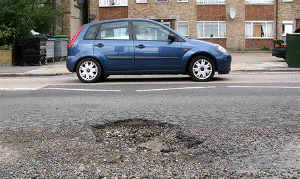What can you do to lower your insurance premium?
What can you do to lower your insurance premium?
Listed below are other things you can do to lower your insurance costs. Shop around. … Before you buy a car, compare insurance costs. … Ask for higher deductibles. … Reduce coverage on older cars. … Buy your homeowners and auto coverage from the same insurer. … Maintain a good credit record. … Take advantage of low mileage discounts. More items…
How can I reduce my car insurance premium after an accident?
Tell Your Car Insurance Provider About Your Accident. … Ask Your Auto Insurer About Accident Forgiveness. … Find A Car Insurance Provider With A Lower Premium. … Improve Your Credit Score. … Look Into Insurance Discounts. … Consider Dropping Your Comprehensive Coverage. … Join A Usage-Based Car Insurance Program. Dec 15, 2021
What means quarterly premium?
Related Definitions Quarterly Premium means a payment that enrollees must pay every three months to receive coverage under CHIP. Sample 1.
What is PPO good for?
A PPO is generally a good option if you want more control over your choices and don’t mind paying more for that ability. It would be especially helpful if you travel a lot, since you would not need to see a primary care physician. Oct 1, 2017
Is premium yearly or monthly?
In order to keep your car, home, apartment, or health insured, you need to pay your monthly premium. An insurance premium is a monthly or annual payment made to an insurance company that keeps your policy active. Jul 26, 2019
What expired insurance?
Expired insurance during a period is recorded as an insurance expense for the same period. Companies lose, or are said to have consumed, their prepaid insurance coverage over time whether or not they have actually used it by filing any claims.
How do you account for insurance premiums?
At the end of any accounting period, the amount of the insurance premiums that remain prepaid should be reported in the current asset account, Prepaid Insurance. The prepaid amount will be reported on the balance sheet after inventory and could part of an item described as prepaid expenses.
What insurance is all about?
Insurance is a means of protection from financial loss. It is a form of risk management, primarily used to hedge against the risk of a contingent or uncertain loss. An entity which provides insurance is known as an insurer, an insurance company, an insurance carrier or an underwriter.
What’s the difference between a premium and a deductible?
A premium is like your monthly car payment. You must make regular payments to keep your car, just as you must pay your premium to keep your health care plan active. A deductible is the amount you pay for coverage services before your health plan kicks in.
What is an insurance rate?
An insurance rate is the amount of money necessary to cover losses, cover expenses, and provide a profit to the insurer for a single unit of exposure. Rates, as contrasted with loss costs, include provision for the insurer’s profit and expenses.
How do I find out my deductible?
A deductible can be either a specific dollar amount or a percentage of the total amount of insurance on a policy. The amount is established by the terms of your coverage and can be found on the declarations (or front) page of standard homeowners and auto insurance policies.
What insurance do I really need?
The Bottom Line. Most experts agree that life, health, long-term disability, and auto insurance are the four types of insurance you must have. Always check with your employer first for available coverage. If your employer doesn’t offer the type of insurance you want, obtain quotes from several insurance providers.
Is umbrella insurance really necessary?
Do you need an umbrella insurance policy? Umbrella insurance isn’t required by law but is most often purchased by people who have a lot of assets to protect or a high chance of being sued. It might be worth purchasing umbrella insurance coverage if you: Own property.
What are some unnecessary insurances?
15 Insurance Policies You Don’t Need Private Mortgage Insurance. Extended Warranties. Automobile Collision Insurance. Rental Car Insurance. Car Rental Damage Insurance. Flight Insurance. Water Line Coverage. Life Insurance for Children. More items…
Which is a type of insurance to avoid?
Avoid buying insurance that you don’t need. Chances are you need life, health, auto, disability, and, perhaps, long-term care insurance. But don’t buy into sales arguments that you need other more costly insurance that provides you with coverage only for a limited range of events.





